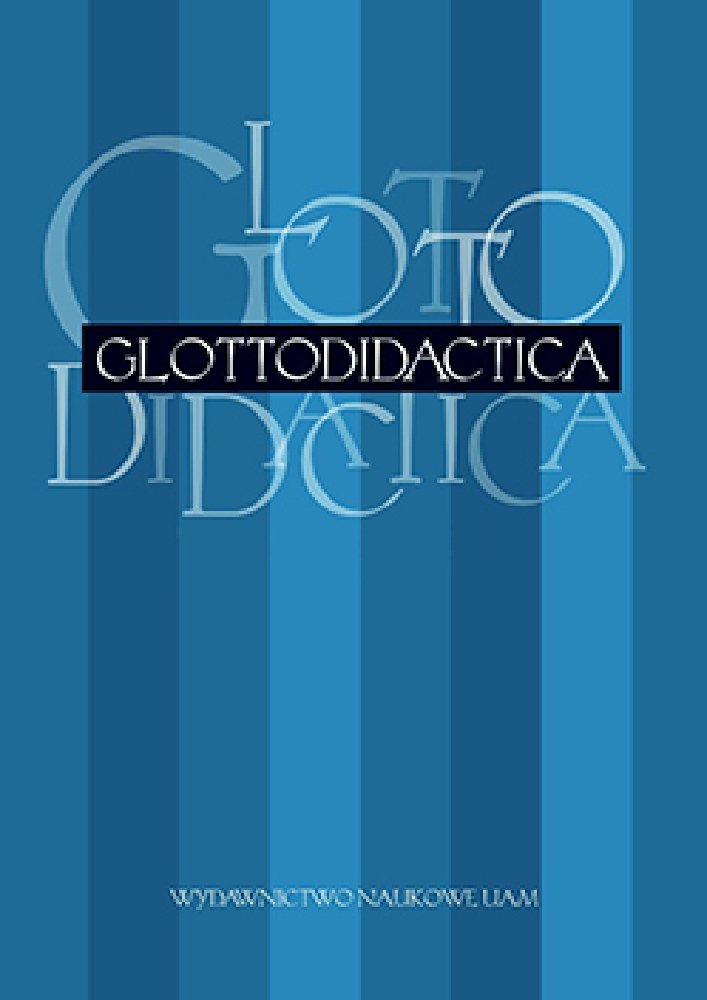Abstract
Foreign language teachers’ language competence is one of the key factors contributingto the success of instruction as it ensures the provision of a good model of the target language,enables teachers to address the problems learners encounter, and makes teaching more creative. For this reason, improving this facet of a teacher’s expertise is indispensible in in-service teacher training, either in the form of stand-alone courses or modules incorporated into more comprehensive teacher education programs. The main aim of the present paper is to emphasize the importance of language teachers’ proficiency in the language they teach, describe its dimensions, presentthe possible goals of in-service teacher education in this area, and discuss issues involved inconducting and organizing training of this kind.References
Bachman, L.F., 1990. Fundamental Considerations in Language Testing. Oxford: Oxford University Press.
Berry, R., 1990. The Role of Language Improvement in In-Service Teacher Training: “Killing Two Birds with One Stone”. In: System 18, 97–105.
Canale, M., 1983. From Communicative Competence to Communicative Language Pedagogy. In: Richards, J.C., Schmidt, R. (eds). Language and Communication. London: Longman, 2–27.
Canale, M., Swain, M., 1983. Theoretical Basis of Communicative Approaches to Second Language Testing and Teaching. In: Applied Linguistics 1, 1–47.
Ellis, R., 2009. Implicit and Explicit Learning, Knowledge and Instruction. In: Ellis, R., Loewen, S., Elder, C., Erlam, R., Philp, J., Reinders, H. (eds). Implicit and Explicit Knowledge in Second Language Learning, Teaching and Testing. Bristol: Multilingual Matters, 3–25.
Farrell, T.S.C., 2007. Reflective Language Teaching: From Research to Practice. London: Continuum.
Harmer, J., 2007. The Practice of English Language Teaching (fourth edition). Harlow: Pearson Education.
Kelly, M., Grenfell, M., Allan, L., Kriza, C., McEvoy, W., 2004. European Profile for Language Teacher Education – a Frame of Reference. Final Report. Luxemburg: European Commission.
Lafayette, R., 1993. Subject Matter Content: What Every Foreign Language Teacher Needs to Know. In: Guntermann, G. (ed.). Developing Language Teachers for a Changing World. Illinois: National Textbook Company, 124–158.
Medgyes, P., 2001. When the Teacher is a Non-Native Speaker. In: Celce-Murcia, M. (ed.). Teaching English as a Second or Foreign Language (third edition). London: Heinle & Heinle, 429–442.
O’Malley, J.M., Chamot, A.U., 1990. Learning Strategies in Second Language Acquisition. Cambridge: Cambridge University Press.
Roberts, J., 1998. Language Teacher Education. London: Arnold.
Roever, C., 2009. Teaching and Testing Pragmatics. In: Long, M.H., Doughty, C.J. (eds). The Handbook of Language Teaching. Oxford: Wiley-Blackwell, 560–577.
Skehan, P., 2000. Task-Based Instruction: Theory, Research, Practice. In: Pulverness, A. (ed.). IATEFL 2002: York Conference Selections. Canterbury: IATEFL, 90–99.
Van Ek, J.A., 1986. Objectives of Foreign Language Learning. Vol. 1: Scope. Strasbourg: Council of Europe.
Williams, J., 2005. Form-Focused Instruction. In: Hinkel, E. (ed.). Handbook of Research in Second Language Teaching and Learning. Mahwah, NJ: Lawrence Erlbaum, 671–691.
License
Authors
Authors of texts accepted for publication in Glottodidactica are required to complete, sign and return to the Editorial team’s office the Agreement for granting a royalty-free license to works with a commitment to grant a CC sub-license.
Under the agreement, the authors of the texts published in Glottodidactica grant Adam Mickiewicz University in Poznań a non-exclusive, royalty-free license and authorize the use of Attribution-NoDerivatives 4.0 International (CC BY-ND 4.0) Creative Commons sub-license.
The authors retain the right to the free disposal of the work.
Users
Interested Internet users are entitled to use works that have been published in Glottodidactica since 2016, under the following conditions:
▪ attribution – obligation to provide, together with the distributed work, information about the authorship, title, source (link to the original work, DOI) and the license itself.
▪ no derivatives – the work must be preserved in its original form. Without the author's consent, it is not possible to distribute the modified work in the form of translations, publications, etc.
Copyrights are reserved for all texts published before 2016.
Miscellaneous
Adam Mickiewicz University in Poznań retains the property right as a whole (layout, graphic form, title, cover design, logo etc.).
Privacy statement
The names and email addresses published on this journal site will be used exclusively for the purposes declared by this journal and cannot be used for any other purpose or by any other party.




